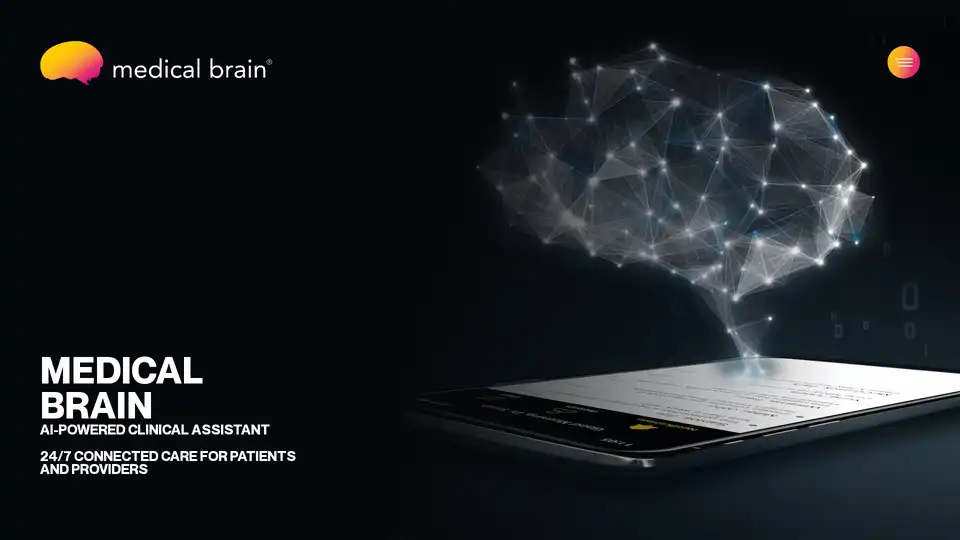
Medical Brain
Overview of Medical Brain
What is Medical Brain?
Medical Brain is an innovative AI-powered clinical assistant developed by HealthPrecision, designed specifically to bridge the gap between patients and healthcare providers. This advanced platform serves as a 24/7 connected care solution, constantly monitoring patient health to identify emerging risks and care gaps early on. By aggregating a wide array of patient data—including electronic health records, free-text notes, patient-generated conversations, and remote patient monitoring (RPM) inputs—Medical Brain delivers actionable, real-time insights that empower users to prevent high-cost emergency room visits and improve overall health outcomes. Whether you're a busy physician or a patient managing chronic conditions, this tool acts as a virtual health companion, ensuring no critical health signals go unnoticed.
In an era where value-based care (VBC) is paramount, Medical Brain stands out by minimizing delays, reducing costs, and enhancing performance metrics for healthcare organizations. It's not just another AI tool; it's a comprehensive clinical decision support system that learns from evidence-based guidelines, expert physician input, and real-world user experiences to evolve continuously.
How Does Medical Brain Work?
At its core, Medical Brain operates through a seamless, intelligent workflow that prioritizes proactive care. Here's a breakdown of its key mechanisms:
Continuous Patient Monitoring: The platform keeps a vigilant watch over patients around the clock, pulling in data from multiple sources like wearable devices, app inputs, and medical records. This real-time aggregation allows it to detect subtle changes in health patterns before they escalate.
AI-Driven Data Analysis and Insight Generation: Using sophisticated AI algorithms, Medical Brain processes both structured and unstructured data—think free-text clinical notes or casual patient chats. It then translates this into personalized recommendations, such as lifestyle adjustments or timely interventions, helping patients act swiftly to avert complications.
Targeted Provider Communication: Unlike systems that bombard providers with alerts, Medical Brain is smart about escalation. It only notifies healthcare professionals when intervention is truly needed, fostering efficient coordination and reducing alert fatigue.
Learning from Best Practices: Backed by a library curated by over 50 full-time physicians and aligned with guidelines from top medical authorities, the platform incorporates modules for specific conditions. It also leverages anonymized data from its user base to refine its intelligence, making it smarter with every interaction.
This workflow ensures that care is connected, continuous, and cost-effective, directly supporting goals like intercepting expensive ER admissions and optimizing resource use in clinical settings.
Core Features of Medical Brain
Medical Brain's strength lies in its modular design, offering tailored solutions across various medical domains. Each module is built on evidence-based protocols, ensuring reliability and clinical accuracy. Key features include:
Evidence-Based Clinical Modules: A growing library covers everything from chronic disease management to surgical prep. Users benefit from protocols vetted by experts, reducing variability in care delivery.
Personalized Patient Engagement: Patients receive direct, actionable guidance via intuitive interfaces, promoting adherence to treatment plans without constant provider involvement.
Integration with Existing Systems: Seamlessly connects to EHRs, RPM tools, and communication platforms, making adoption straightforward for practices already using digital health tech.
Real-World Adaptation: By analyzing daily clinical experiences from users, Medical Brain improves over time, adapting to diverse scenarios like outpatient follow-ups or acute care needs.
These features make it a versatile tool for both ambulatory and inpatient environments, with a focus on preventive measures and outcome improvement.
Detailed Clinical Modules: Tailored for Specific Needs
Medical Brain's modules are specialized to address common healthcare challenges. Below are highlights of some key ones, each designed to guide providers and patients through evidence-based pathways:
Obstetrics Module
This module focuses on maternal health for normal and high-risk pregnancies. It provides guidelines for safe management, prenatal monitoring, and postpartum care, ensuring optimal birth experiences. For instance, it flags potential risks like gestational diabetes early, offering personalized action plans to prevent complications.
Orthopedics Module
Covering surgical and non-surgical conditions, this includes pre-op optimization for patients with comorbidities, intraoperative support, and post-op recovery protocols. It's ideal for managing chronic issues like arthritis or joint replacements, with tips on pain management and rehab.
Lifestyle Modifications Module
For preventive care, this helps users implement changes for conditions like obesity or cardiovascular risks. It draws from proven strategies, such as diet and exercise plans, to maintain health and avoid exacerbations.
Radiology Module
Optimizes imaging decisions by recommending the right studies based on symptoms and history, reducing unnecessary scans and radiation exposure while improving diagnostic accuracy.
Infectious Diseases Module
Spans outpatient to inpatient care, including sepsis and COVID-19 management. It supports rapid response protocols, antibiotic guidance, and patient education on isolation measures.
Renal Failure Module
From mild impairment to end-stage disease, it guides dialysis prep, fluid management, and lifestyle tweaks to stabilize kidney function and delay progression.
Hyperlipidemia Module
Aims for optimal lipid control through meds and habits, covering familial hypercholesterolemia to secondary causes, with tracking tools for progress monitoring.
COPD Module
Offers protocols for exacerbation prevention, inhaler use, and pulmonary rehab, strengthening patient-provider bonds for better long-term management.
Diabetes Module
Comprehensive for Type 1, 2, and gestational diabetes, emphasizing glycemic control via insulin regimens, nutrition, and monitoring to prevent neuropathy or retinopathy.
Hypertension Module
Facilitates blood pressure tracking and adjustments, integrating meds with stress reduction techniques for sustained control.
Arrhythmias Module
Handles everything from PACs to AFib, with detection alerts, anticoagulation advice, and lifestyle mods to reduce stroke risk.
Valvular Heart Diseases Module
For conditions like aortic stenosis, it provides diagnostic pathways, surgical timing, and follow-up care based on ACC/AHA guidelines.
Heart Failure Module
Covers Stages A through D, from risk factor mod to advanced therapies like LVADs, with fluid status monitoring to prevent hospitalizations.
These modules exemplify how Medical Brain turns complex guidelines into practical tools, enhancing decision-making at every stage.
Primary Use Cases and Practical Value
Medical Brain shines in scenarios where timely intervention can make a difference:
Chronic Disease Management: For patients with diabetes, hypertension, or heart failure, it prevents flare-ups by providing daily insights and reminders.
Preventive Care in Value-Based Models: Healthcare providers use it to meet VBC incentives by reducing readmissions and ER use, potentially saving thousands per patient annually.
Remote Patient Monitoring: Ideal for post-discharge follow-up or rural settings, where access to in-person care is limited.
High-Risk Population Support: Obstetrics and infectious disease modules help vulnerable groups, like pregnant individuals or those with comorbidities.
The practical value is clear: lower costs (by averting ER visits), better outcomes (through early detection), and improved satisfaction (via connected, personalized care). Studies in similar AI health tools show up to 30% reductions in hospital admissions, and Medical Brain's physician-backed design positions it to achieve even more.
Who is Medical Brain For?
This platform targets a range of users in the healthcare ecosystem:
Healthcare Providers: Physicians, nurses, and clinics seeking efficient decision support without workflow disruption.
Patients and Caregivers: Individuals managing chronic conditions who need accessible, 24/7 guidance.
Employers and Payers: Organizations focused on population health, aiming to cut costs and boost productivity through healthier workforces.
Health Systems in VBC: Those transitioning to outcome-based reimbursements, where proactive care is key.
If you're dealing with fragmented data or delayed insights, Medical Brain is your ally for streamlined, effective care.
Why Choose Medical Brain Over Other Healthcare AI Tools?
What sets Medical Brain apart is its human-AI synergy: developed with input from 50+ physicians, it combines cutting-edge tech with clinical wisdom. Unlike generic monitoring apps, it offers deep, condition-specific modules and learns from real usage. Plus, its privacy-focused approach ensures data security, complying with HIPAA standards. Users report faster care coordination and higher adherence rates, making it a top choice for modern healthcare challenges.
How to Get Started with Medical Brain
Getting up and running is simple. Visit the HealthPrecision website to request a demo, where the team can showcase the platform tailored to your needs. Integration is quick, and support is available for customization. Whether for a single practice or enterprise rollout, Medical Brain scales effortlessly.
In summary, Medical Brain redefines clinical assistance by making AI a proactive partner in health. By focusing on early risk detection, personalized insights, and evidence-based modules, it delivers tangible benefits: healthier patients, efficient providers, and sustainable care systems. Explore how it can transform your approach to healthcare today.
Best Alternative Tools to "Medical Brain"
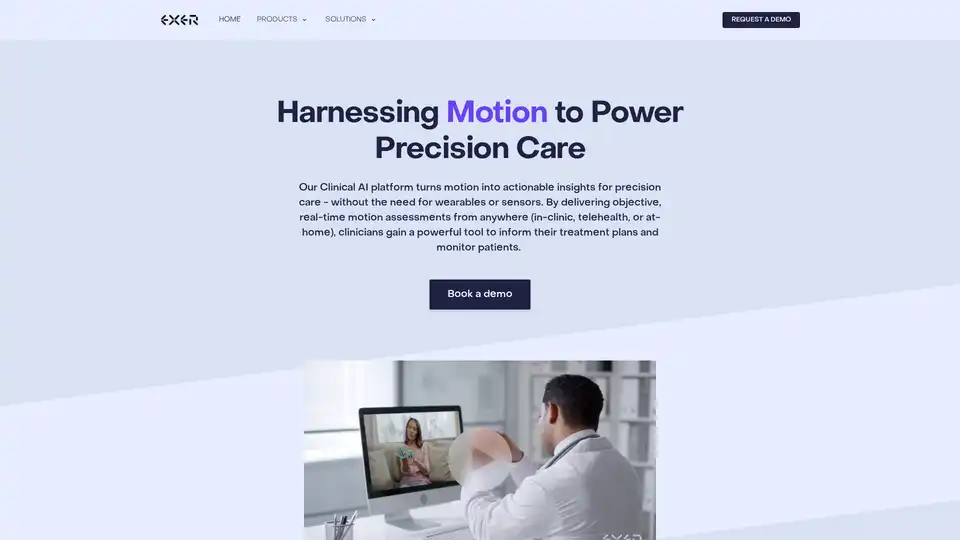
Exer AI harnesses motion to provide real-time insights for precision care of musculoskeletal conditions. It enhances clinical decision-making and personalizes treatment plans without wearables or sensors.
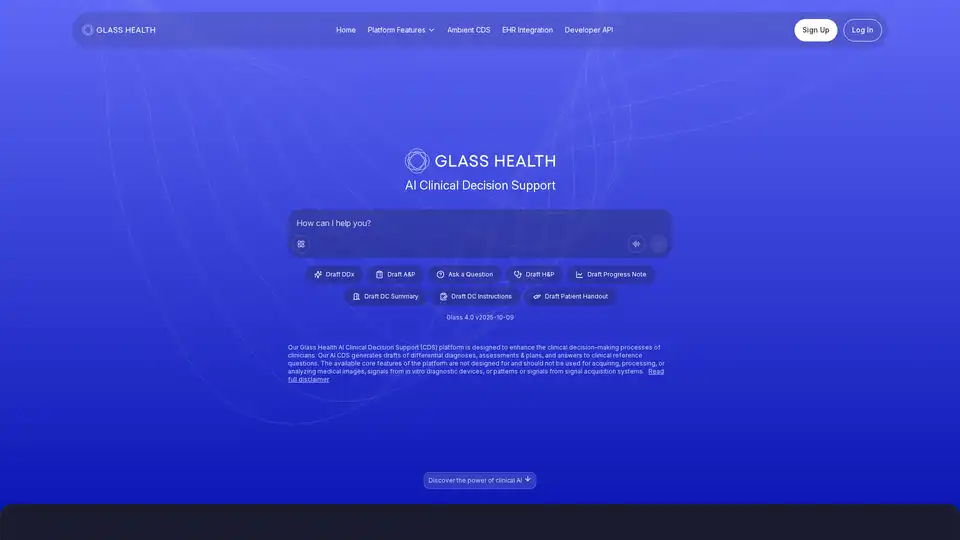
Glass Health is an AI-powered clinical decision support tool enhancing diagnostic accuracy and streamlining clinical workflows. Trusted by leading clinicians, it provides real-time insights and evidence-based answers.
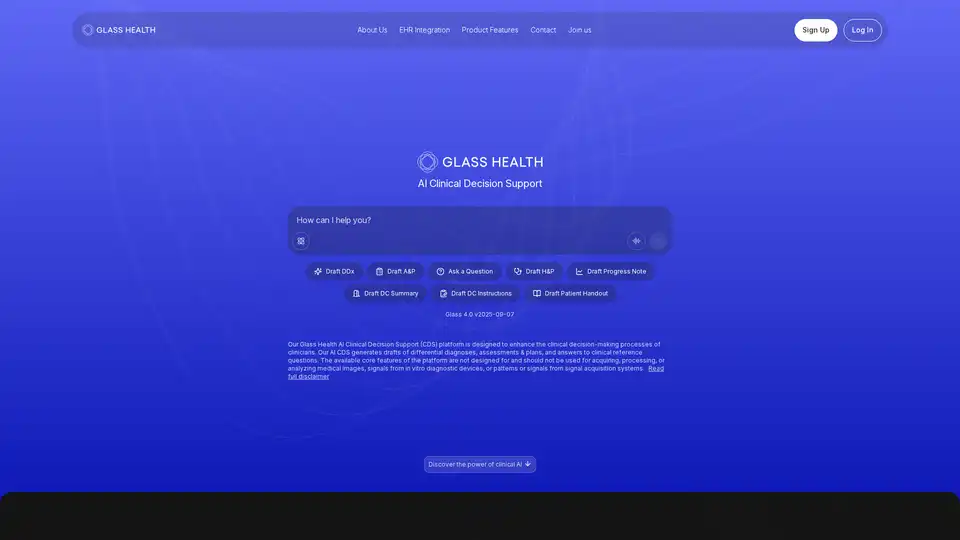
Glass Health AI Clinical Decision Support enhances clinical decision-making with AI-generated drafts for diagnoses, assessments, and clinical reference questions, improving diagnostic accuracy.
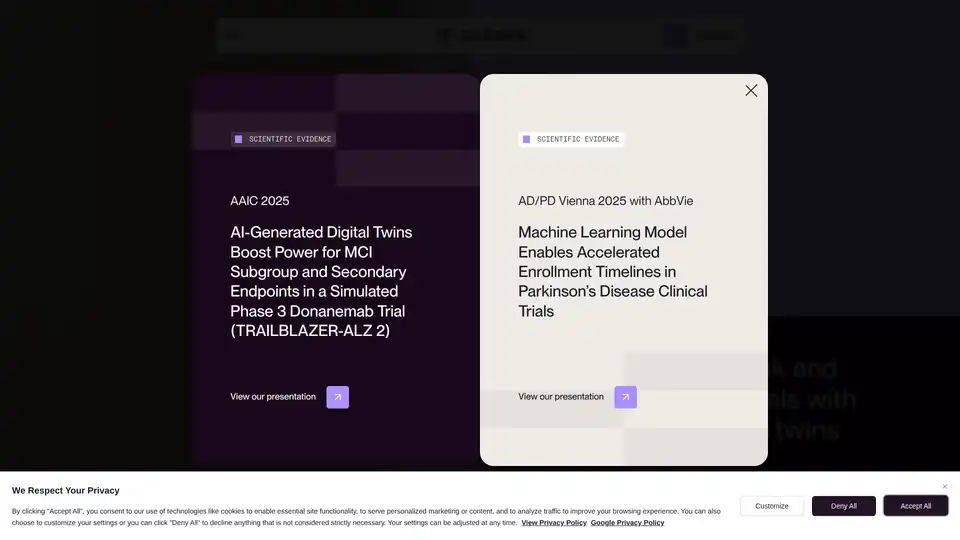
Unlearn uses AI to create digital twins of clinical trial participants, streamlining clinical development and enabling confident decision-making in healthcare. Accelerate trial timelines and improve decision-making.
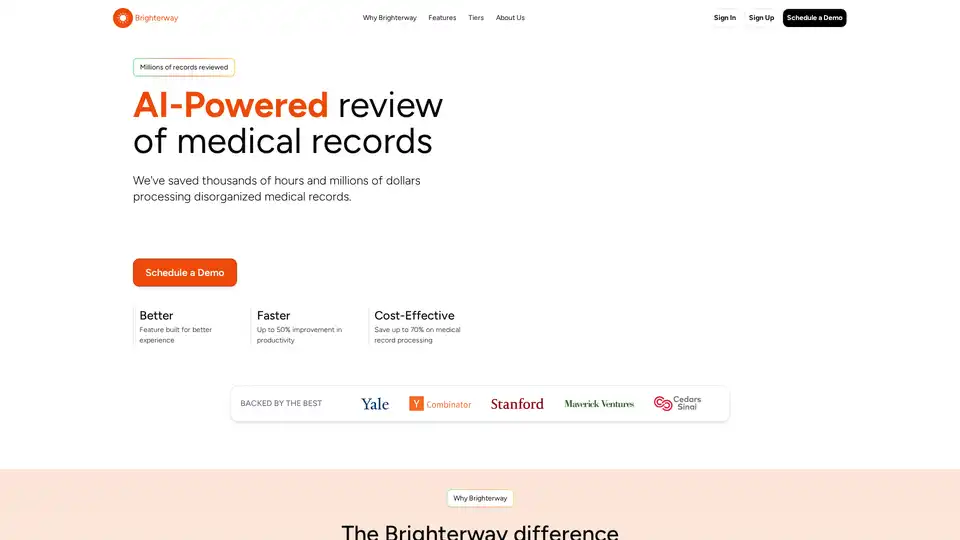
Brighterway leverages AI to streamline medical record reviews, boosting productivity by up to 50% and cutting costs by 70%. Ideal for physicians and medical legal professionals seeking efficient healthcare solutions.
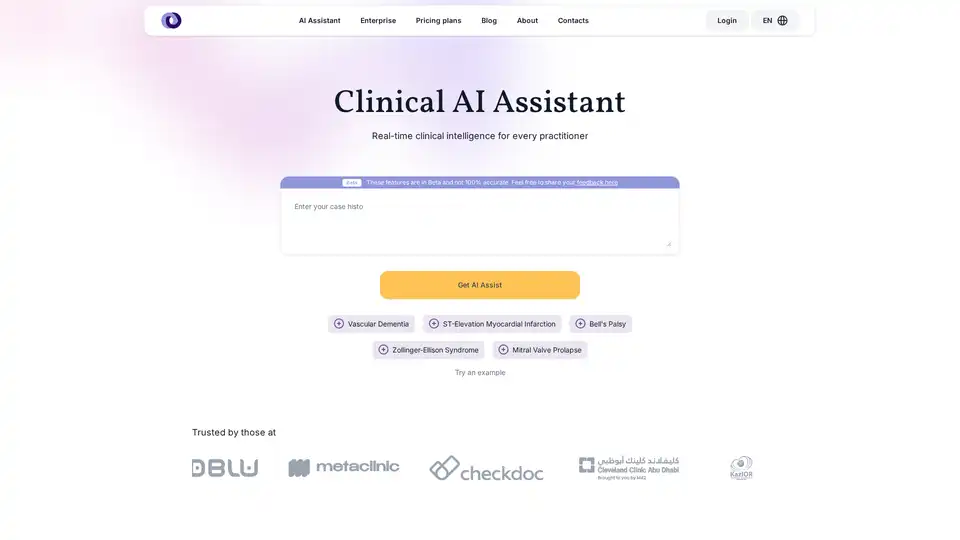
Empower your medical practice with Medcol, the AI-driven diagnostic assistant designed for healthcare professionals. Enhance patient care with our advanced AI technology.
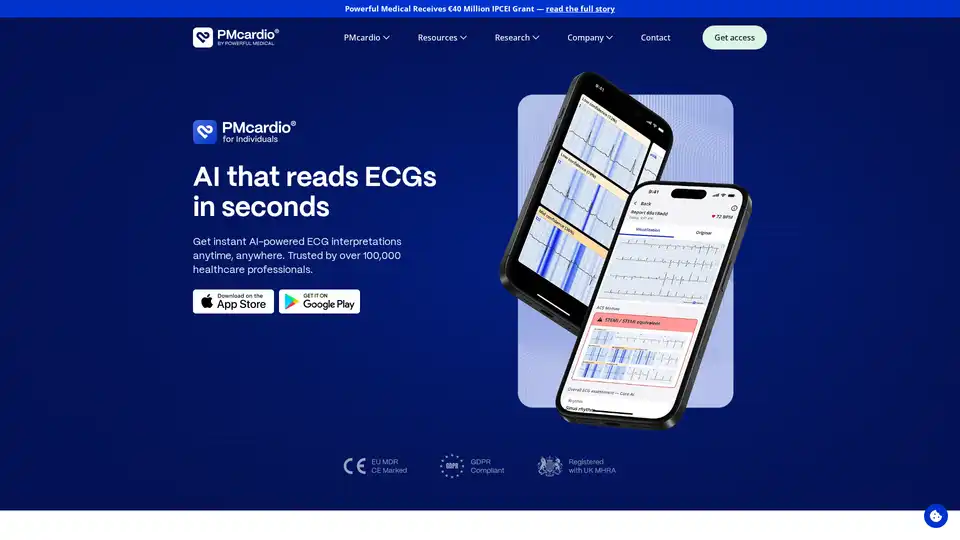
Get instant AI-powered ECG interpretations anytime, anywhere. PMcardio is clinically validated in 15+ studies and trusted by over 100,000 clinicians worldwide.
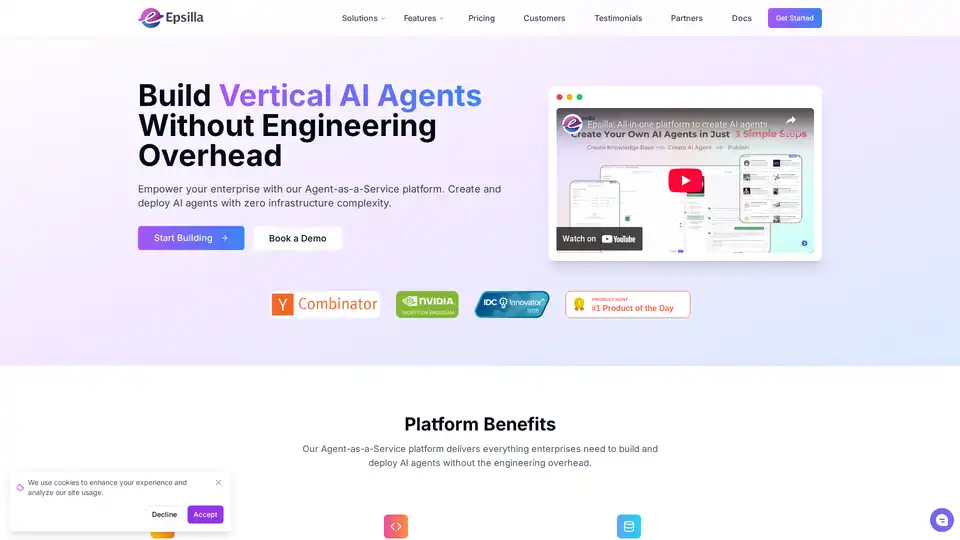
Epsilla is an enterprise-grade Agent-as-a-Service platform that enables businesses to build and deploy vertical AI agents without engineering overhead, featuring no-code tools and RAG capabilities.
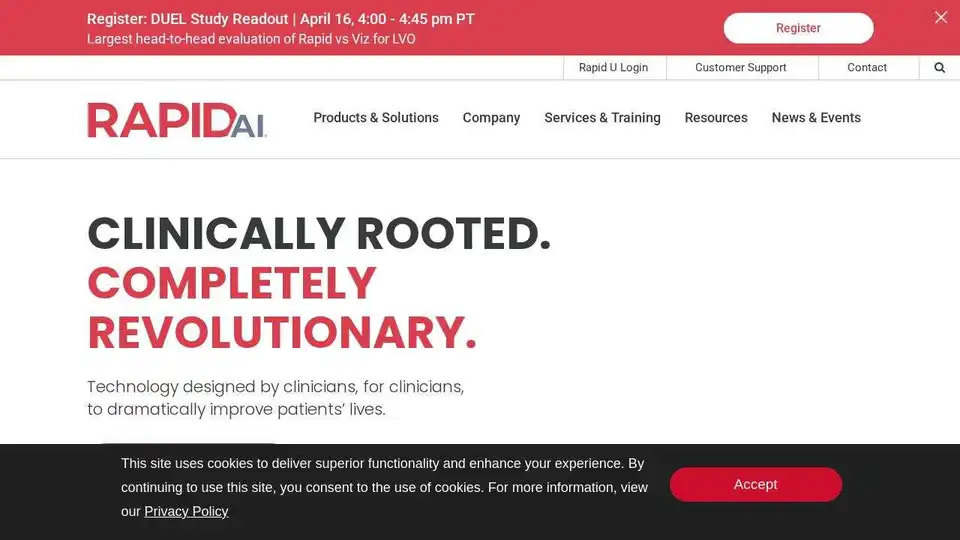
RapidAI delivers clinical AI on an enterprise platform, enhancing assessment and transforming care across service lines. Improve stroke, trauma, and cardiac care with real-time insights.
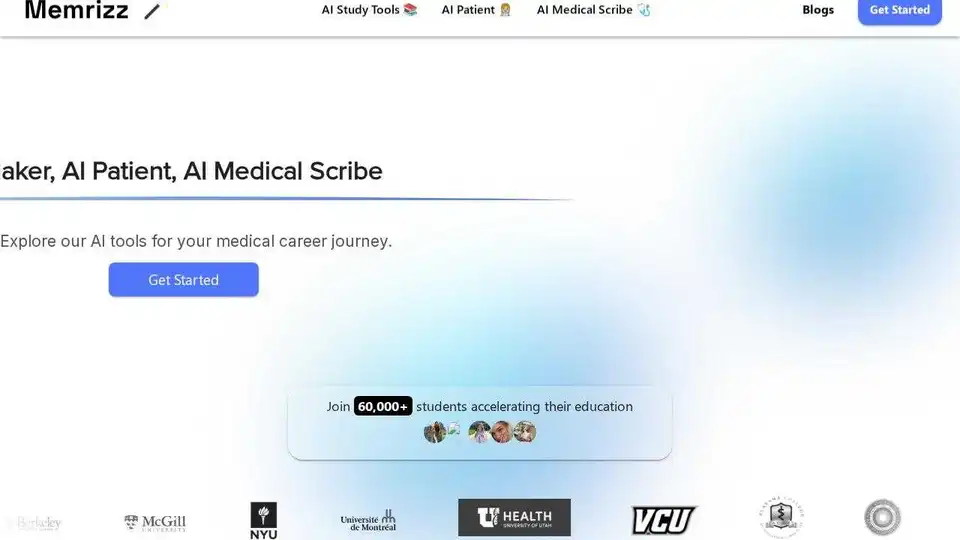
Memrizz is an AI-powered platform offering AI flashcard generation, AI patient simulation, and an AI medical scribe to enhance medical school education. Join 80,000+ students today!

Oatmeal Health revolutionizes early cancer detection with AI-driven screening and navigation, empowering FQHCs and hospitals to improve care in underserved communities.
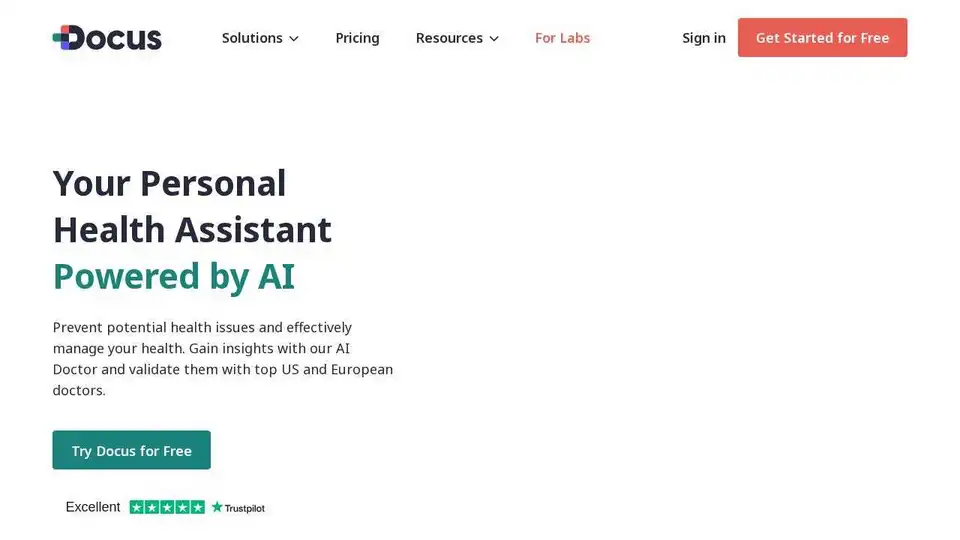
Docus delivers trusted AI tools that improve care and support better decisions for patients, doctors, and health companies.
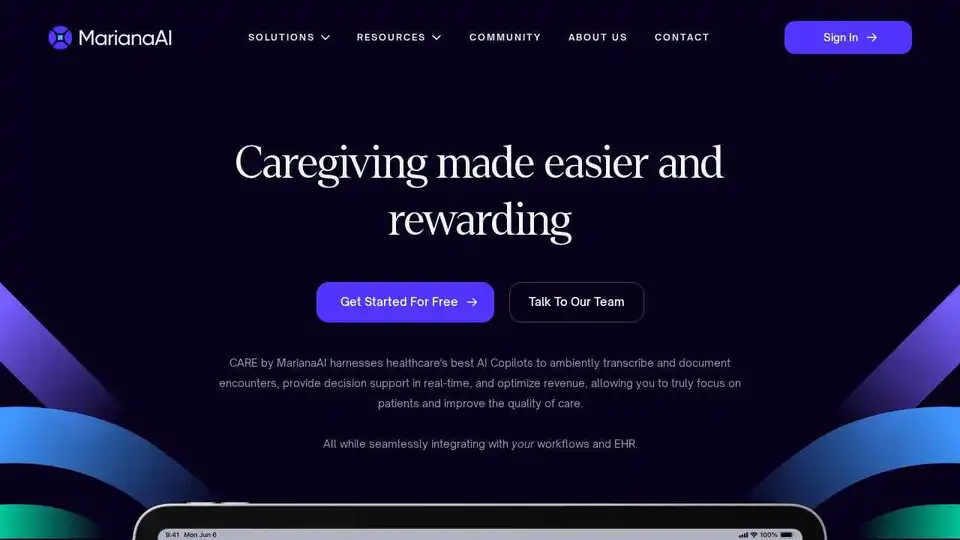
MarianaAI's CARE platform uses AI to transcribe encounters, provide decision support, and optimize revenue, integrating with EHRs for improved patient care.
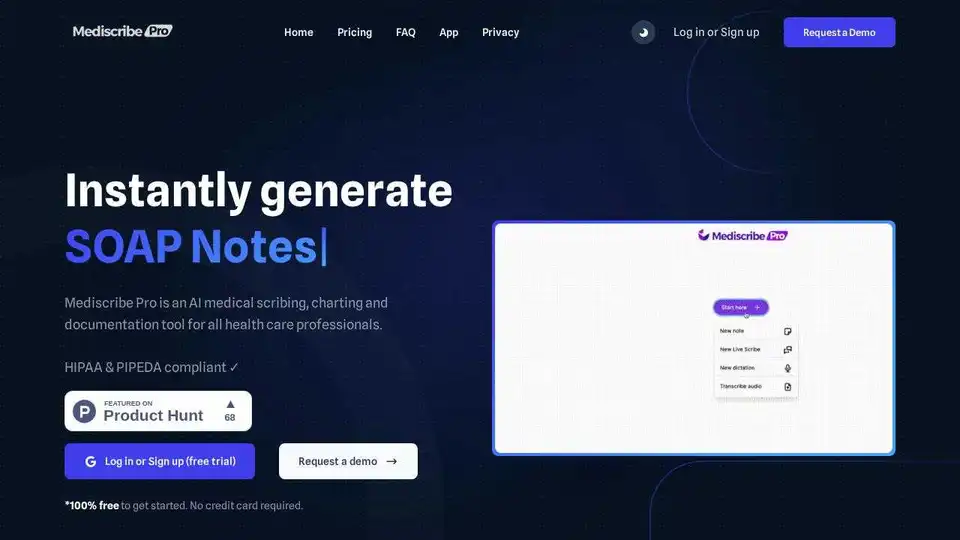
Mediscribe Pro is an AI medical scribing and charting tool for healthcare professionals, generating SOAP notes and reducing administrative burden.
